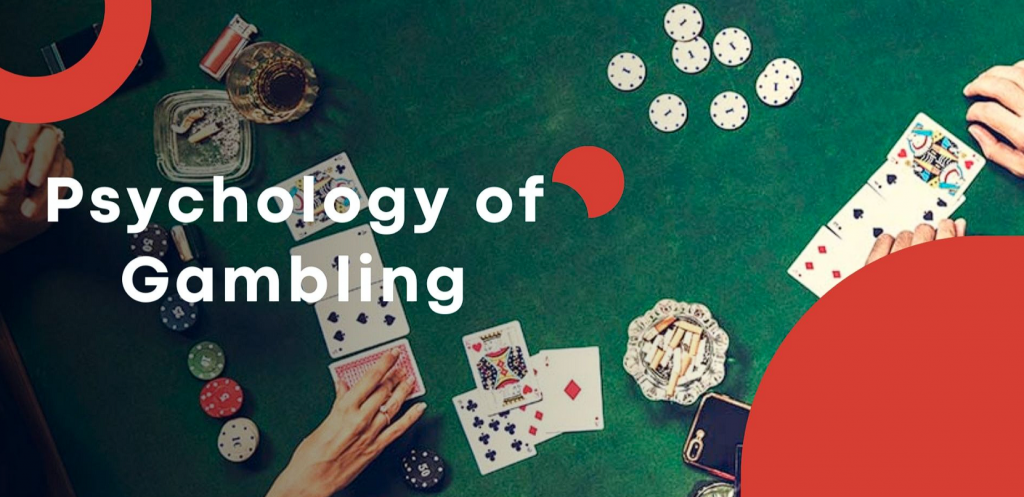Betting is not just a game of chance; it involves significant psychological elements that can influence decisions, behaviors, and outcomes. In Tanzania, where sports betting has gained immense popularity, understanding the psychological aspects of betting is crucial for both novice and seasoned bettors. This article explores various psychological factors that impact the betting experience, the influence of emotions, cognitive biases, and strategies to enhance decision-making.
The Role of Psychology in Betting
Understanding Betting Behavior
Betting behavior is significantly influenced by psychological factors. Bettors’ decisions can be swayed by their emotions, risk perception, and cognitive processes. Recognizing these factors can help bettors make more informed decisions and reduce impulsive actions.
Key Psychological Factors in Betting
- Emotional Influence: Emotions play a crucial role in decision-making. Passionate support for a favorite team, excitement during a live match, or frustration after a loss can cloud judgment.
- Cognitive Biases: Bettors are often affected by cognitive biases, which can lead them to make irrational decisions. Common biases include overconfidence, confirmation bias, and the gambler’s fallacy.
- Social Influence: The opinions and behaviors of peers can impact an individual’s betting choices, especially in social betting environments where discussions about odds and predictions are prevalent.
The Impact of Emotions on Betting
Positive and Negative Emotions
Emotions can have a profound impact on betting behavior. Understanding how different emotional states influence decisions can help bettors manage their approach.
1. Positive Emotions
- Excitement and Thrill: Winning bets create positive emotions, encouraging bettors to engage more frequently. This excitement can lead to increased risk-taking.
- Optimism Bias: Successful bets may foster an unrealistic belief in future winning streaks, leading to overconfidence and larger wagers.
2. Negative Emotions
- Frustration and Anger: Losing bets can evoke frustration, driving bettors to chase losses through larger or riskier bets, often exacerbating financial setbacks.
- Anxiety: The pressure to recover losses can create anxiety, impairing judgment and leading to impulsive decisions.
Managing Emotions While Betting
To enhance decision-making, bettors should adopt strategies to manage their emotions. Some effective techniques include:
- Mindfulness Practices: Engaging in mindfulness techniques can help bettors remain aware of their emotional states and make more rational choices.
- Setting Limiting Rules: Establish specific limits on time and money spent on betting sessions to reduce emotional decision-making and enhance control.
- Taking Breaks: Avoid prolonged betting sessions during high-stress periods. Regular breaks allow for clearer thinking and emotional regulation.

Recognizing and Overcoming Cognitive Biases
Common Cognitive Biases in Betting
Cognitive biases can distort bettors’ perspectives, leading to poor decision-making. Some common biases in betting include:
- Overconfidence Bias: Bettors may overestimate their understanding of teams and outcomes, which can lead to poor wagering choices.
- Confirmation Bias: Bettors may only seek information that confirms their existing beliefs about a team or a game, ignoring contradictory evidence.
- Gambler’s Fallacy: This phenomenon occurs when bettors believe that past events, such as recent losses or wins, influence future outcomes, despite each bet being independent.
Strategies to Combat Cognitive Biases
To minimize the effects of cognitive biases, bettors can adopt these strategies:
- Educate Yourself: Continuously seek knowledge about sports, betting strategies, and odds to enhance understanding and reduce overconfidence.
- Diversify Information Sources: Consult multiple sources of information to develop a well-rounded understanding of teams and events rather than relying on personal biases.
- Reflect on Decisions: After betting, take time to review your decisions and outcomes. Assess how biases may have influenced your choices and strive for improvement.
Social Dynamics in Betting
The Influence of Social Circles
Social dynamics play a substantial role in shaping betting behaviors. Bettors may be influenced by the experiences and opinions of their peers, especially in environments where discussions about betting are frequent.
1. Peer Pressure
The desire to conform to the betting habits of friends or groups can lead to impulsive decisions or larger wagers than intended. Peer pressure can create environments where bettors feel compelled to match others’ excitement or energy.
2. Groupthink
In group settings, individuals may suppress dissenting opinions to maintain harmony, leading to collective betting decisions based on incomplete information.
Navigating Social Influences
To navigate social dynamics effectively, bettors should:
- Establish Personal Betting Guidelines: Set personal betting strategies in advance to follow, regardless of peer pressure.
- Seek Diverse Opinions: Engage with a variety of people to gather insights and information instead of relying solely on close friends’ views.
- Encourage Healthy Discussions: Promote open conversations about betting without the influence of peer pressure, allowing for more thoughtful decision-making.
Conclusion
Understanding the psychology of betting is essential for bettors in Tanzania looking to enhance their betting experience. By recognizing the impact of emotions, identifying cognitive biases, and navigating social influences, bettors can make more informed, rational decisions. Implementing strategies to manage emotions and biases can lead to a more enjoyable and successful betting journey. Ultimately, being mindful of the psychological aspects of betting can improve not only the outcomes of individual wagers but also overall satisfaction with the betting process.
Description
Explore the psychology of betting, focusing on emotional influences, cognitive biases, and strategies to improve decision-making for Tanzanian bettors.
